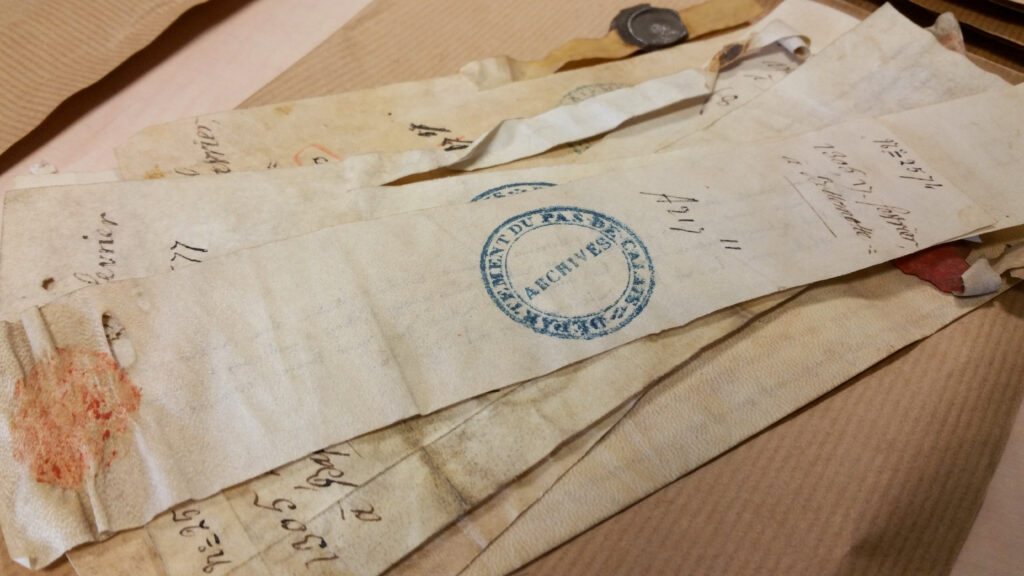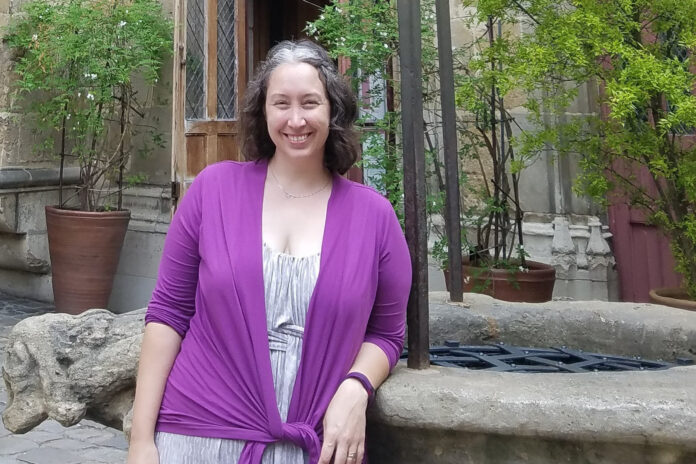
A Mercer University professor is spending the academic year at one of the nation’s most popular gardens, where she will further her research related to garden and landscape studies.
Dr. Abigail Dowling, assistant professor of history, is taking a yearlong sabbatical to be a part of the 2024-25 cohort of Dumbarton Oaks Fellows.
Dumbarton Oaks, located in Washington, D.C., is a Harvard University institution that specializes in the disciplines of Byzantine, pre-Columbian, and garden and landscape studies. It has an extensive research library and collection, a 27-acre garden, and a museum.
Dr. Dowling is among 35 scholars selected for the program and among five chosen specifically for the garden and landscape studies discipline. She served as a junior fellow at Dumbarton Oaks in summer 2013 when she was in graduate school, and she had hoped to eventually secure a fellowship as a professor.
“I think the garden itself is really inspirational. I’m really hoping to be able to make a lot of progress on my book manuscript while I’m there,” she said.
The cohort aspect was one of the main reasons Dr. Dowling was interested in the fellowship. She said few Mercer professors study landscape and gardens, and Dumbarton Oaks provides the unique opportunity for her to gather with others who are interested in the same specialty area. She is looking forward to having lunch with the other fellows each day, hearing their unique perspectives, and learning about their projects.
Landscape and garden studies looks at how landscape and culture influence one another, and Dr. Dowling’s current research looks at how environmental resources were managed and moved from rural to urban settings to support cities and their populations.
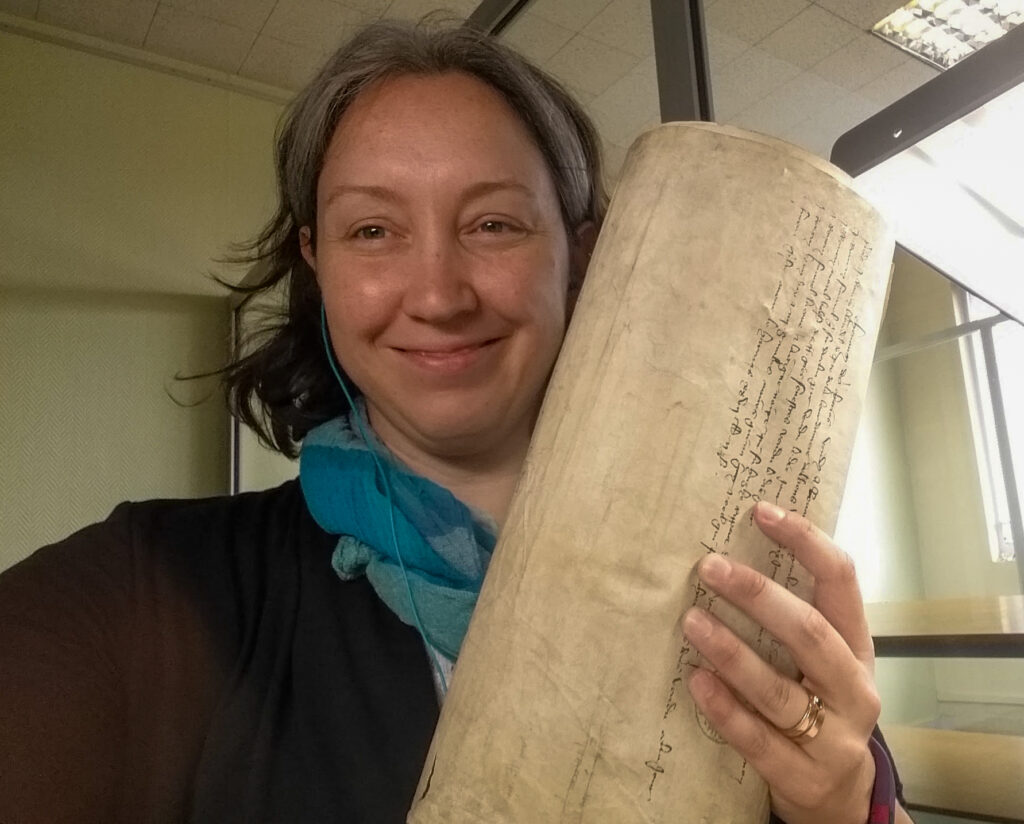
For her book, which will be called “Supplying Artois,” she is specifically looking at the 14th century in the city of Artois, France — a region containing some of Europe’s largest market cities of the time — and the experiences of a countess named Mahaut as she governed her land.
“I’m really trying to demonstrate that medieval people … all had a pretty clear understanding of what the environment could and could not provide and ways to alleviate risk in terms of the environment, so they could harvest, use and purchase these resources for themselves,” she said.
Dr. Dowling said books in her research area are difficult to obtain, and the fellowship gives her access to one of the largest collections of landscape and garden historical materials.
“It’s a very specialized library, so that means I have access to published texts. They have an extensive private collection,” she said.
Mercer students played a substantial role in Dr. Dowling’s research for her book, she said. Contributors include alumni Trevor Langhill, Brandon Jeter and McGregor Koenig and current students Kamari Fuller and Benjamin Utt.
“None of this would be possible without these students. I do not have the expertise that these students have,” Dr. Dowling said. “Each and every one of these students brought something to this project that I had not thought about before, and I am immensely grateful to them all for offering their (assistance) and perspective to me. Teaching and research aren’t separate for me. Now that I’ve spent eight years at Mercer working with the students, I’m finally ready to take the space for what I need to do now that they’ve helped me.”
With around 12,000 documents to analyze in one particular collection, Dr. Dowling knew early on that a big picture study for her book would not be possible without implementing some form of data management. Langhill focused on the early-stage structuring and organization of the data; Jeter and Koenig worked to refine the database and develop additional search tools; and Fuller and Utt helped Dr. Dowling to start training a large language model — a type of artificial intelligence — for character recognition within the original manuscripts. Fuller is continuing to work on the project this year.
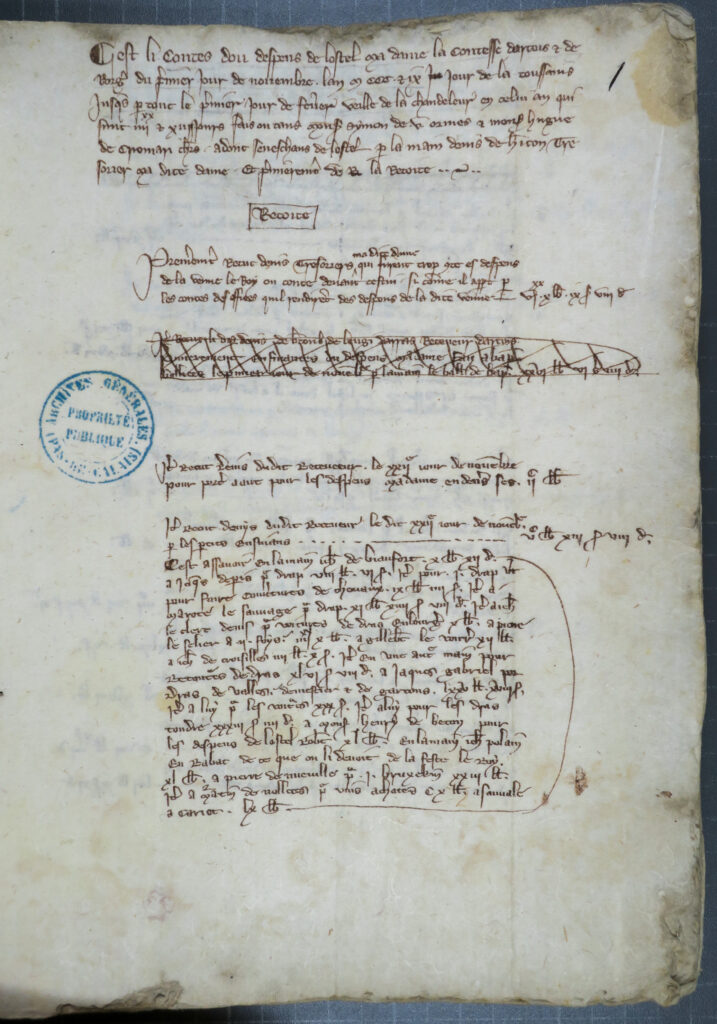
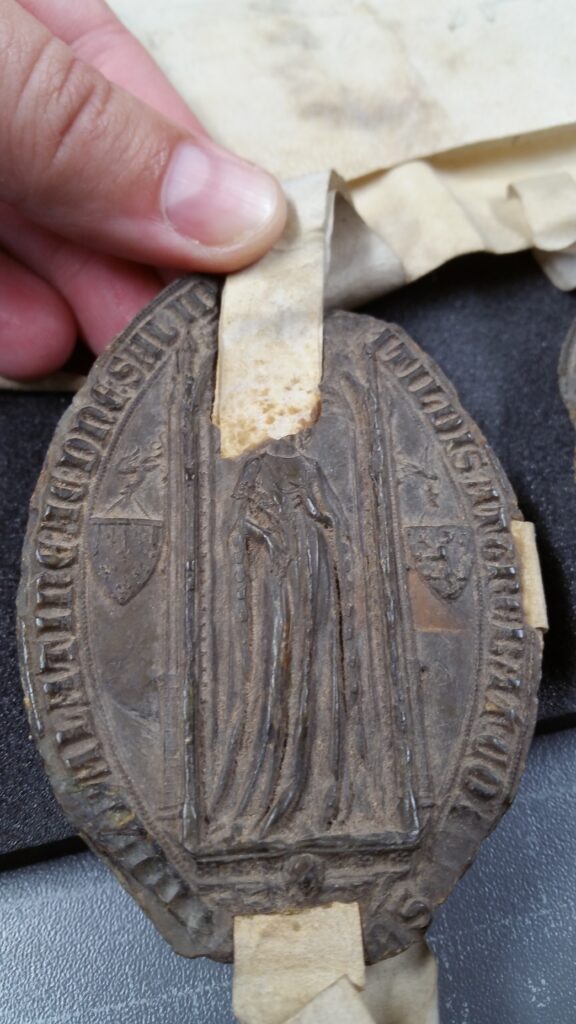
Dr. Dowling said the use of a large language model and database in her project are examples of how Mercer’s history department is using cutting-edge digital tools to answer historical questions or display information in a way that is more understandable for the general public. Projects like this present an opportunity for students to blend their unique skills with historical research.
Koenig, a 2024 graduate, said she was able to apply knowledge from both her computer science and French majors as an intern for Dr. Dowling. During her senior year, she translated medieval manuscripts from Old French to modern French to English and input the information into the database.
“It was really fascinating. I learned a lot,” she said. “I really loved being able to do an internship for a professor at Mercer, to be on a small team and to see what I was doing was making a difference.”
Koenig said the project introduced her to data analytics and showed her additional options for her career.
“Doing this project with Dr. Dowling let me see that there are other things you can do with computer science,” she said. “I never would have imagined there was a way to use computer science and combine it with French. It really opened my eyes to a whole world of prospects and opportunities.”
Dr. Dowling said she will miss teaching this year, but she is excited for the opportunity to focus fully on her research while at Dumbarton Oaks.
“The world is so busy, and we expect work to be produced so quickly. But when I’m dealing with the kind of questions I have and the data I have, it’s not possible to do this work rapidly,” she said. “I need slow work. I need time to think over, to mull over, to go back, to recheck. I’m very much looking forward to some time to slow down and engage in some slow research.”
